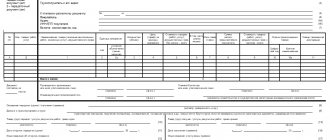Any enterprise is required to maintain accounting records. Responsibility for maintaining records rests with the company's chief accountant. What is accounting, why is it needed and who has the right not to do accounting, we will tell you in this article.
Any enterprise is required to maintain accounting records. Responsibility for maintaining records rests with the company's chief accountant. What is accounting, why is it needed and who has the right not to do accounting, we will tell you in this article.
Accounting is an orderly system for collecting, registering and summarizing information in monetary terms about the property, obligations of an organization and their movement through continuous, continuous and documentary accounting of all business transactions.
Any transaction must be reflected in accounting. Buying a pencil, issuing a salary, calculating depreciation or obtaining a loan - all these are types of business transactions that must be recorded and reflected properly.
Each operation must be documented. Documents can be different: contracts, invoices, accounting cards, expense orders, etc.
One of the main principles of accounting is the reflection of all transactions using special accounts. Each transaction must be reflected in the debit and credit of the corresponding accounting accounts.
Accounting is maintained in accordance with the provisions of Federal Law dated December 6, 2011 No. 402-FZ. The law reveals the requirements for record keeping, describes the principles of record keeping, contains a list of persons obliged to maintain accounting, etc.
Most often, accounting is carried out in special programs. The accounting program is selected depending on the needs of the company, its turnover and type of activity. You can conduct accounting online using web services. Automation of accounting greatly simplifies the work of an accountant.
Definition of Accounting
Any accounting is a systematic collection, recording and interpretation of information of a certain kind. When we talk about accounting, we mean a system that allows you to operate with data on all business transactions and obligations expressed in financial terms.
IMPORTANT REQUIREMENT! Documentary recording of this information must be permanent, continuous (from the moment of registration until the liquidation of the company), complete, in accordance with the established regulations.
Accounting takes into account the following business factors:
- property assets of a commercial organization;
- entrepreneur's agreements;
- transactions carried out in the business process.
Organizational accounting arrangements
We are convinced that profit growth and improving positions in the Russian or international market are priority areas for any organization. Be it a small company or a large international organization.
Accounting at an enterprise is a taxation system, accounting for expenses and income, and paying wages to employees. Setting up accounting is a service provided to organizations by the Capital Accounting Corporation in Moscow and the region. Various companies, small and large, have been cooperating with us for 18 years.
Setting up an accounting system will allow you to properly organize the work of your enterprise, avoid risks, increase profits and create a convenient option for analyzing internal and external reporting. In order to set up an organization for accounting from scratch, it is necessary to invite a professional with experience in different companies to cooperate.
As a rule, business owners invite employees of outsourcing companies to do accounting. It's inexpensive and reliable.
- Such a specialist knows everything about accounting at a particular enterprise, and will be able to integrate his skills into your organization.
- He will choose (or analyze) the tax system, offer options for preparing internal documentation, make forecasts and determine where the risks may be.
Reasons for the need for accounting
The first and most logical reason for carrying out accounting according to a generally accepted procedure is legal requirements. The desire and capabilities of an entrepreneur do not matter when it comes to the legislative framework established by the state.
If accounting is not kept
An organization has no right not to keep accounting records. If business transactions were not recorded properly, and accounting records were never compiled and submitted to the regulatory government authorities, such an entrepreneur is subject to liability:
- for gross neglect of the rules for providing accounting documentation and maintaining appropriate records, as well as the timing and procedure for saving all accounting documents, officials will face a fine of 2-3 thousand rubles. (Article 15.11 of the Code of Administrative Offenses);
- If the tax authorities were not provided with the information required by law about economic activity in due time, citizens will pay a fine of 100-300 rubles. (for each identified case), and officials risk 300-500 rubles. for each delay or failure to provide data (Article 15.6 of the Code of Administrative Offenses).
Accounting: functions and tasks of the department
Each company must determine the functions and tasks of the Accounting department independently. The main thing is that it combines the specifics of the company’s work and the main tasks and functions of accounting. The number of employees and the distribution of responsibilities between them depends on the size of the enterprise, its resources and direction of activity. Sometimes all the tasks can be performed by just one person, and sometimes a whole staff of professionals is needed. Small organizations may well use the services of third-party companies and accountants who provide outsourcing services.
Legal documents
- Federal Law of December 6, 2011 No. 402
- By Order of the Ministry of Finance dated July 29, 1998 No. 34n
Accounting objectives
The remaining factors that determine the use of accounting are related to the needs of the entrepreneur himself. Forming a complete picture of data on the property status and activities of an organization in its dynamics is necessary not only for stating facts, but also for making forecasts. So, accounting is designed to solve the following pressing tasks of the owner and manager of a business:
- current and constant provision of structured, objective and accurate economic information to management;
- finding out the reserves of the organization’s property assets to realize the financial stability of the company;
- implementation of the control function (on the part of the state and other external contractors);
- minimizing negative outcomes of economic activity.
What exactly is done in the accounting process
The process of any accounting is aimed at identifying significant factors, measuring essential indicators and presenting the results obtained. For accounting it will be:
- determination of the financial structure of the enterprise - its property assets, its capital, income, costs, dynamics of its fixed assets, financial liabilities;
- measuring the cash equivalent of the present assets in an appropriate manner applicable for reflection in the financial statements;
- provision of the received data in the form required by law, as well as in ways deemed convenient for users.
Main tasks of accounting
Unlike the goal, which is not stated anywhere, but follows from the essence of the work and functions of accounting, the tasks of accounting are formulated in paragraphs. “c” clause 4 of the Regulations on accounting and financial reporting in the Russian Federation, and they can even be listed. So, the objectives and principles of accounting are that authorized accountants:
- They generate complete and reliable information about the company’s activities and its property status. This information is intended for both internal users (managers, founders, owners of the organization) and external users (investors, regulatory authorities).
- They prepare reports that are necessary to monitor how the company complies with legal requirements, fulfills its financial and property obligations, and uses its resources (material, labor, financial).
- Prevent and prevent the negative consequences of improper business practices.
- They identify strengths and weaknesses, as well as reserves for optimal use of resources and increased profitability.
Functions flow smoothly from all these points, that is, actions that must be constantly performed in order to complete the assigned tasks and achieve the goal. It follows from this that the tasks and functions of accounting are inextricably linked and there is no particular point in considering them separately.
Accounting principles
This type of accounting is not conducted arbitrarily, but in strict accordance with the basic provisions adopted and approved at the legislative level.
- The principle of autonomy - only information related to the own property of this particular organization is taken into account, separated from related data (for example, property of co-owners, employees, etc.).
- The principle of double entry - the balance is compiled according to double accounts (debtors and creditors), which must coincide numerically (how much is lost on one account must be earned on the other).
- The operating organization principle provides for the mandatory fulfillment by the organization of its obligations in the foreseeable future.
- The principle of objectivity - all activities of the organization must be objectively reflected in the relevant documentation and registered at all stages of accounting.
- The principle of prudence prohibits overstatement of assets and understatement of liabilities, and vice versa.
- The principle of periodicity - the balance sheet is compiled in strictly defined accounting periods (they can be a month, a quarter, a half-year and, without fail, an accounting year), which allows you to compare financial results for any time period of interest.
- The principle of confidentiality - some accounting data intended for internal use, which does not fall into the category of reporting to government agencies, may constitute a trade secret.
- The principle of monetary measurement - the unit of measurement in accounting is the current currency of the country, that is, in the case of the Russian Federation, it will be the ruble.
- The principle of continuity - accounting provisions take into account the achievements of domestic economic science and national characteristics.
- Accrual principle – financial transactions are recorded not at the moment of transfer of funds, but at the stage of their occurrence. They are taken into account in the time period when the given business transaction was carried out. Available in two forms:
- fixation of revenue (income part of the balance sheet) - profit is reflected at the time of receipt, not payment (in the Russian Federation this is the moment of paid shipment, in other countries this moment may be associated with delivery or delivery of payment);
- correspondence of profits and expenses - in the same reporting period, income must balance the expenses that made it possible to obtain these incomes, separate accounting of income and expenses relating to different accounting periods.
What errors occur when maintaining accounting records - TOP 4 most common errors
Organizations submit reports of various forms: tax (declarations, calculations, etc.), accounting (balance sheet, profit and loss statements, capital flows, cash flows, etc.). The number of forms depends on the company’s taxation system.
With such a variety of reporting forms, errors often occur. Let's look at some of them.
Error 1. Violation of the procedure for preparing for the generation and submission of reports
Formation and submission of reports requires certain preparation. Inventory is one of the activities of the preparatory process, which allows you to avoid many mistakes.
If the inventory procedure is violated, there is a high probability of ending up with unreliable data in the reports.
During preparation, the data in the accounting registers may remain unverified, which can also contribute to the occurrence of errors in accounting. In such a situation, partial restoration of accounting may sometimes be required (for more information about this, read a separate article on our website).
Error 2. Distortion of the original cost of fixed assets
Accounting for fixed assets (FA) is a very complex issue; checks very often reveal various types of errors. Perhaps the most common is the distortion of the original cost of fixed assets.
Other common mistakes when determining the cost of OS objects:
- one inventory item is counted as several (or vice versa);
- the costs of purchasing or manufacturing the OS are not included in the initial cost;
- the cost of operating systems purchased for foreign currency was incorrectly assessed;
- expenses for reconstruction and modernization are included in current expenses.
When correcting such shortcomings, it is almost always necessary to recalculate the accrued depreciation, which in itself is troublesome and fraught with additional errors.
Error 3. Poor preparation and conduct of annual inventory
Inventory is the most important event in the financial and economic activities of any organization. Even the Ministry of Finance issued special guidelines for its implementation.
Despite the importance of the process and its methodological support, in practice there are a huge number of errors in this matter.
Often those responsible for preparing and conducting the inventory commit elementary negligence, carrying it out “for show.” As an example, I will give a case from my practice.
Example
November 2010. At LLC “Skorost”, where my neighbor Galina Ivanovna worked as chief accountant, they were preparing for the end of the year. As usual, it was planned to begin the final inventory on December 1.
But the unexpected happened - Galina’s father dies, and she urgently leaves for Arkhangelsk. Her deputy Svetochka takes the reins in the accounting department. As a result, they remembered about the inventory only a week before Galina’s return.
There was no talk of any step-by-step inventory: they quickly compared the warehouse balances with the accounting balances, interviewed the departments by phone to see if “all the property was in place,” generated all the necessary statements in 1C, signed them, put them in folders and calmly began to wait for the chief accountant.
Of course, all the mistakes made did not escape Galina’s experienced eye.
Here are just a few of them:
- there was no order for inventory;
- there was no actual removal of balances in warehouses;
- no reconciliation of property was carried out at the places of operation;
- All members of the commission signed the inventory documents, although dispatcher Romanova (a member of the commission) was on study leave at that time;
- statements of reconciliation for settlements were not received from all creditors and debtors, while in the inventory sheet for this area it was written that the reconciliation was carried out.
Galina canceled all materials of such “inventory” and, starting from December 24, at LLC “Speed” this process started again, but in full compliance with the requirements of regulations.
Error 4. Reflection of business transactions without supporting documents
There are cases when business transactions are reflected in a company’s accounting records without supporting documents. This is a gross violation! This can happen for several reasons.
Main reasons:
- negligence of accounting employees;
- weak internal controls;
- selfish intent.
To prevent all of the above violations, we recommend:
- approve document flow rules and strictly implement them;
- strengthen internal control;
- constantly improve the level of professionalism of employees.
We suggest you consolidate your information by watching the video.
Elements of accounting
Accounting consists of the use of a set of special economic techniques to reflect the actual availability and dynamics of an organization's property and financial assets. These include:
- documentation;
- assessment;
- list of accounting accounts (strictly regulated by law);
- double entry (credit-debit);
- inventory;
- calculation;
- balancing;
- maintaining records on paper and/or electronic media that have the force of legal evidence of the organization’s economic activities.
Accounting in commercial companies
The organization of accounting, as well as the storage of accounting documentation, should be handled by the manager of the company. Also, he must decide who will be responsible for maintaining records. So, accounting in an organization can be carried out by:
- Chief Accountant;
- Other company officer;
- Specialized company;
- A person who is not an employee of the company, but is engaged in accounting under a special contract.
If the company is recognized as a small or medium-sized enterprise, the director can handle accounting in a commercial organization.










